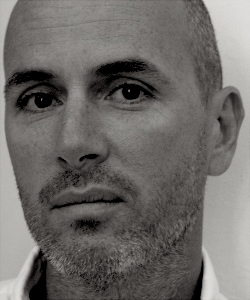
On Being Alone Together
Contributor’s Marginalia: Michael Bazzett on “Faith” by Jacques Rancourt
Sometimes I walk into the cool dark of a chapel and I can almost smell God. Or my memory of what it felt like to believe. Perhaps it’s the same thing. I don’t know. But I like to spend time in the asking, and this where Jacques Rancourt’s “Faith” took me, with its elegant questions: into a resonant space for wonder.
The poem is a tiny cathedral in itself. Framed in symmetries both large and small, I enter and sense that I am in good hands. Eight couplets. Eight questions. Yet not one query deigns to become a perfect couplet, and only the first and last lines allow the question mark to reside in its customary home. Instead, the propulsive enjambment of the poem sends its syntax flowing through its architecture, a tumbling waterfall of asking.
This perfectly-imperfect coupling speaks of a yearning for union, and is underscored by the preponderance of pairs echoing throughout the poem: in the “two walls;” in the alliterative doubling of “canes and crutches,” “remain in rafters,” and “peeling plaster;” in how the “healed” and “hum” hold line six in their embrace; in both the “how longs?” of the sixth stanza and the paired “bodies” of the seventh; and in the evocation of the “Old Word” and “the New,” (or the “crippled” and the “crooked”), as they reach hands toward one another across the blank chasm of the stanza break.
In the end, I don’t know if I can tell the difference between roses and onions, between prayer and poetry. How much of poetry is the simple hope that someone might be listening at 3 o’clock in the morning? How much of prayer is that luminous moment when we find the right word to hold the inner heat of our desires? It seems we eavesdrop on our hearts in both, as it asks questions in the dark.
